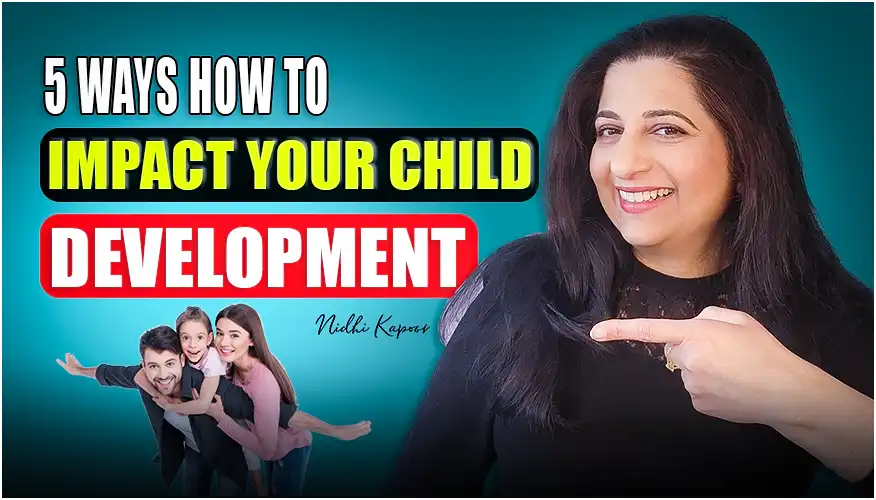As a therapist, I often find that many of my clients’ challenges in adulthood trace back to their childhood—specifically their relationships with their parents. Now, no parent wakes up thinking, “How can I mess up my child today?” But sometimes, despite the best intentions, we subconsciously send the wrong signals to our kids’ developing brains.
It’s widely accepted in developmental psychology that early childhood, especially up to around age seven, plays a crucial role in shaping beliefs and behaviors that stick with us throughout life. During this period, children are highly receptive to external influences, absorbing everything from parental behavior to societal norms like sponges.
Negative experiences like constant criticism, lack of emotional support, or unrealistic expectations can leave lasting imprints on a child’s subconscious mind, leading to limiting beliefs, self-doubt, and insecurities in adulthood.
So, how can we ensure we’re giving our children the best foundation possible? Here are five important points to keep in mind:
1. Avoid Comparisons
Children should feel fully accepted and celebrated for who they are, without the pressure of living up to anyone else’s standards. Comparing your child to others—whether it’s a sibling, a friend’s kid, or a classmate—sends the message that they aren’t good enough. This can lead to feelings of inadequacy and low self-worth that linger well into adulthood.
Instead of imposing your own desires or expectations on your child, foster an environment that encourages independence and growth. Let them be who they are meant to be, and they’ll grow into confident, resilient adults.
To learn more about Life Coach please visit: nidhikapoor.com
2. Encourage Positive Reinforcement
No child is perfect, but every child craves love, validation, and acceptance. Without praise, children might grow up seeking validation from others, especially future partners, rather than developing a strong sense of self-worth.
Take time to celebrate the small wins. Whether it’s passing a test, tying their shoelaces, or finishing a puzzle, look for opportunities to praise your child. These little acknowledgments build their “praise muscle,” strengthening their sense of self and mental resilience.
3. Allow Emotional Expression
Too often, children are conditioned to suppress their emotions—whether it’s anger, sadness, or frustration. While this might make things easier in the short term, it can lead to anxiety and emotional blockages in adulthood.
Allow your child to express their emotions, and be there to support them through the process. Personally, when my preschooler throws a tantrum, I give her a hug and let her know I’ll wait for her to calm down before we talk. The key is to stay emotionally neutral during the storm, so they feel safe to express themselves without feeling judged or reprimanded.
This approach helps children process their emotions in a healthy way, teaching them that all feelings are valid, and they won’t be punished for having them. Read more: 5 Ways to Reframe Your Thoughts for a Positive Mindset
4. Give Them Time, Not Gadgets
In today’s fast-paced world, it’s tempting to hand kids a gadget to keep them occupied. But no matter how busy we are, substituting quality time with screens won’t create confident, self-assured, happy adults—guaranteed.
Excessive screen time can lead to disrupted sleep patterns, physical inactivity, and difficulties with social interaction. Even more concerning, it can interfere with emotional development, as screens don’t provide the same level of connection and engagement as real-life interactions.
Make time each day to be fully present with your children, whether it’s during bedtime, while preparing dinner, or after work. Mindfully engaging with them, without distractions, strengthens your bond and helps them feel secure and valued.
5. Avoid Using Food as a Reward
Using food as a way to comfort or reward your child may seem harmless, but it can have long-term consequences. Childhood obesity is already a global concern, but beyond the physical risks, associating food with love and comfort can lead to emotional eating in adulthood.
Imagine a child who is always comforted with food—when they’re upset, their parent gives them chocolate to cheer them up. Over time, the child begins to link food, especially sugary snacks, with emotional comfort. As an adult, this can translate into unhealthy eating habits during stressful or emotional moments.
By breaking the link between emotions and food early on, you help your child develop healthier coping mechanisms that will serve them well into adulthood. Read more of my blogs post
In Conclusion: Be the Architect of Your Child’s Future
Parenting is one of the most important, yet complex, jobs we have. Every little action can shape your child’s future, so be mindful of how you communicate, encourage, and connect with them. By making small shifts in how we approach parenting, we can set our children up to become confident, resilient, and emotionally healthy adults.
Remember, no one is perfect—but with a little awareness, we can make all the difference in our children’s lives.
FAQ for How to Impact your Child Development
Q1. What factors impact the development of a child?
Key factors include a nurturing environment, positive relationships, engaging activities, and responsive interactions.
Q2. At what age is 90% of the brain developed?
By age 5, about 90% of a child’s brain development is complete.
Q3. At what age is your brain 100% grown?
The brain fully matures around age 25, completing its development.
Q4. How to increase the brain power of a child?
Stimulate brain growth through engaging activities, proper nutrition, regular exercise, and nurturing relationships.
Q5. At what age is your brain the strongest?
The brain is often considered strongest in the late teens to early twenties, when cognitive abilities peak.




